Nkwobi is cow leg mixed in a spicy palm oil sauce. Cow leg Nkwobi is the most popular type of Nkwobi, it is a delicacy from Igboland of Eastern Nigeria. It grew from a beer parlour (pub) favourite to a classy restaurant staple and with my simple recipe, you can have it on your dinner table. Some vendors in most beer parlours, bulk up the cow leg by mixing in cheaper cow skin (ponmo) from the cow’s head and body.
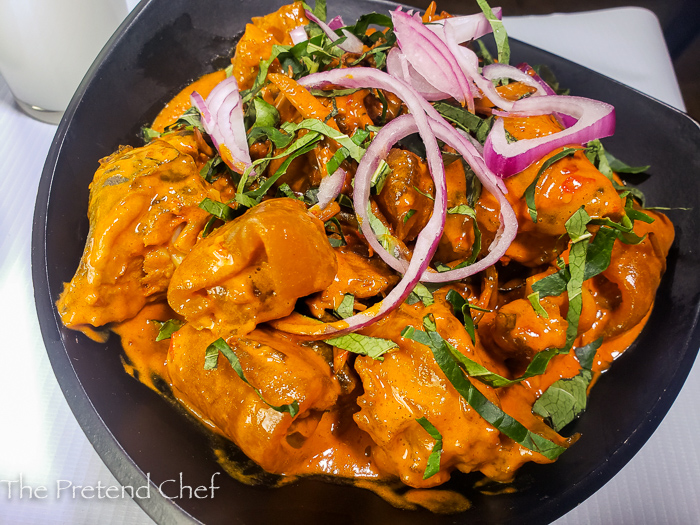
Eating animal feet is common in many parts of the world like Asia, South America, parts of Europe (France), this includes chicken feet, goat trotters, cow feet, pig trotters etc., prepared in their own special cuisine. Different countries have their own special Cow foot dishes, Caribbean Cow foot soup, Philippine Kare Kare, Zimbabwean Mangqina/Mazondo, Egyptian Fattah kawara, Nigerian cow foot pepper soup (same recipe as Nigerian oxtail pepper soup). Some people believe it is an aphrodisiac.
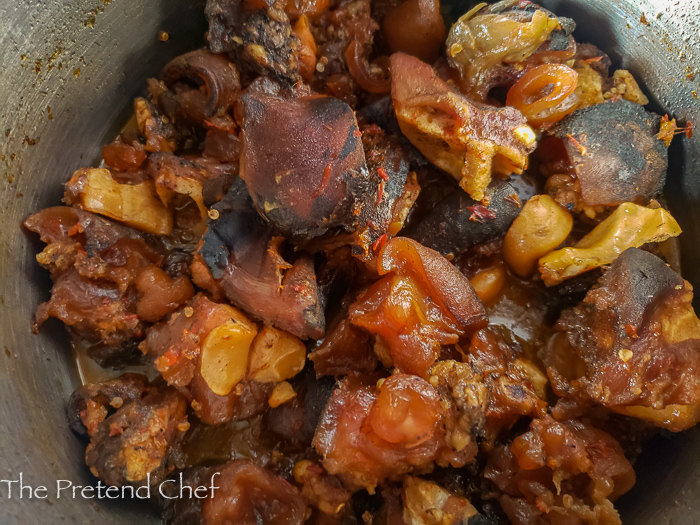
You can also make Nkwobi with goat leg, cow head or cow skin (ponmo), some people even use hard chicken. It is similar to Isi-ewu (goat head in spicy palm oil sauce)but the major difference between the two is, when making isi-ewu, the cooked brain of the goat is added to the spicy sauce.
About Nkwobi Ingredients
The cow feet need to be boiled until it is very soft and tender which can take a very long time, so to save time and fuel, use a pressure cooker or add 10-15 pieces of dry beans to the meat (beans act as a meat tenderizer, this I learnt from my butcher and honestly I still don’t know the science behind it). You can also use akanwu (potash) to tenderise the meat.
Nkwobi can be made with a lot of sauce or not, depending on whether you are serving it with a side of yam or rice or not. I love scooping up the sauce with boiled or roasted yam and plantains.
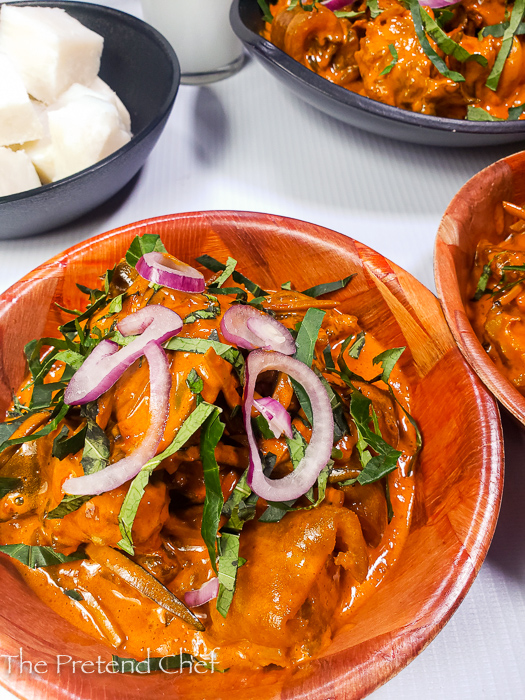
Don’t use too many spices in your nkwobi or they will overpower the taste and flavour of the creamy sauce. The sauce should be spicy (pepper-hot) but within your tolerance level. Use good quality palm oil.
Ehuru (calabash nutmeg)should be roasted before use. The heat releases its essential oils which contains its essence and flavour. You can roast ehuru in a dry pan over high heat or over an open fire, better yet, buy the pre-roasted one in the market. Utazi or any good bitters is needed to balance the rich sweetness of the meat sauce. Crayfish is not particularly necessary, just a little will do. In fact, I prefer to use crayfish seasoning cubes with very little ground crayfish.
If you cannot find akanwu, use baking soda as a substitute for akanwu.
Curry, thyme, garlic or ginger are not used in making Nkwobi unless you absolutely like them in it. The beauty of Nkwobi is that it is a simple dish.
*PLEASE SEE NOTES BELOW
How to prepare Nkwobi, Cow leg in spicy palm oil sauce
1.5kg Cow leg 1/2 small onion 1 cup ugba (ukpaka) 1 cup Palm oil 2 tablespoons Akanwu (potash, kaun)* 3 seasoning cubes 1 tablespoons crayfish or 1/2 crayfish seasoning cube 2 Ehuru (toasted and ground) 2 scotch bonnet/fresh pepper (ground) salt Garnish 1 small onion (thinly sliced) few utazi leaves (thinly sliced) 1/2 chopped scotch bonnet/fresh pepper
*2 tablespoon Akanwu powder (20g) + 4 1/2 tablespoons water
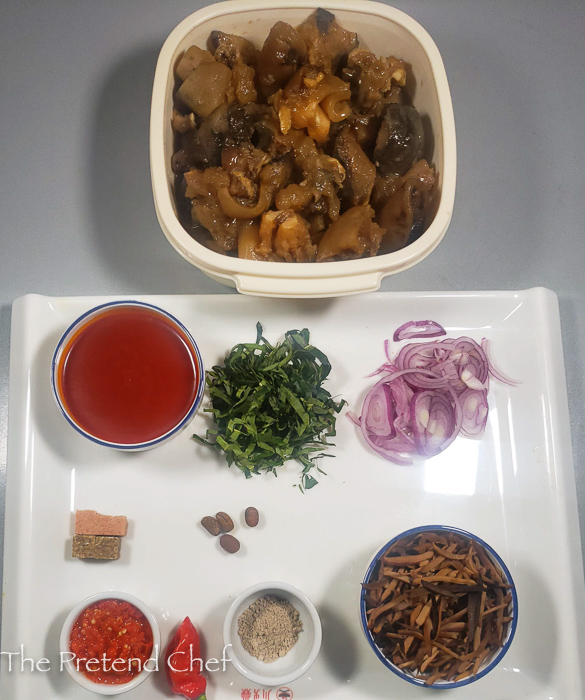
Have the butcher remove the large bone from the cow leg and cut the cow leg into small pieces.
Wash thoroughly and place in a pot.
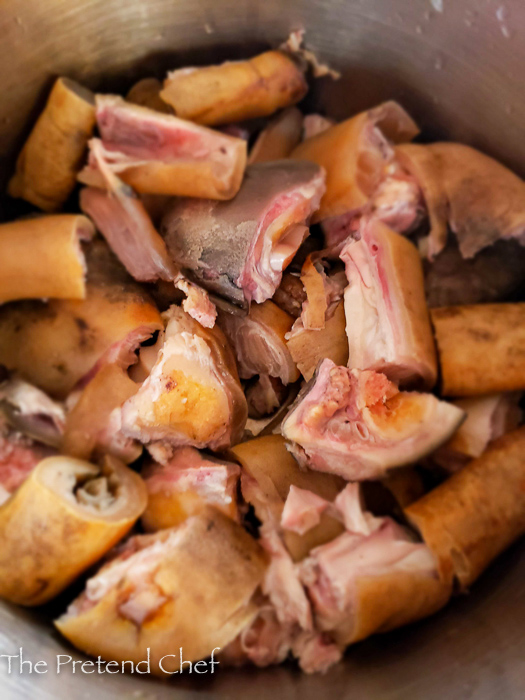
Add water, salt and two seasoning cubes, cook meat until very soft.
Be careful when adding water and salt because you want to have just a small quantity of concentrated stock left in the pot when the cow leg is ready.
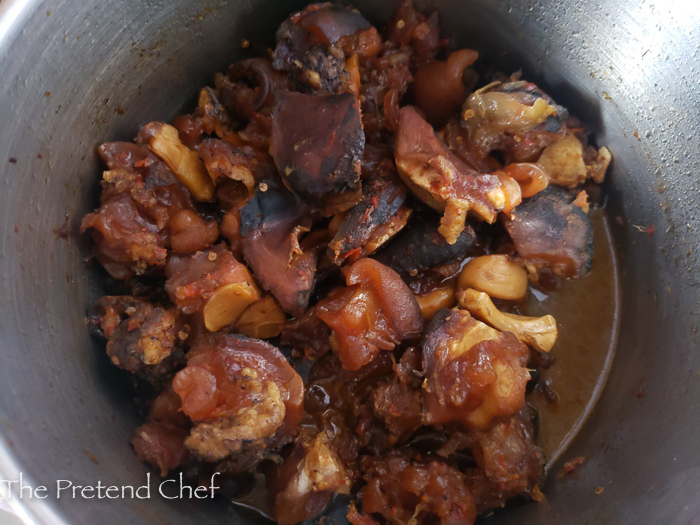
Set aside to cool down.
In a small bowl, put akanwu and water, stir until well mixed, leave to stand to allow any sand to settle at the bottom.
Meanwhile, thinly slice onions into rings, shred utazi and chop pepper for the garnish, set aside.
Pour palm oil into a medium-sized pot.
Add 3 tablespoons of the akanwu (potash) water and stir continuously using a wooden spoon, add more and stir until the oil thickens and the colour changes from red to yellow.
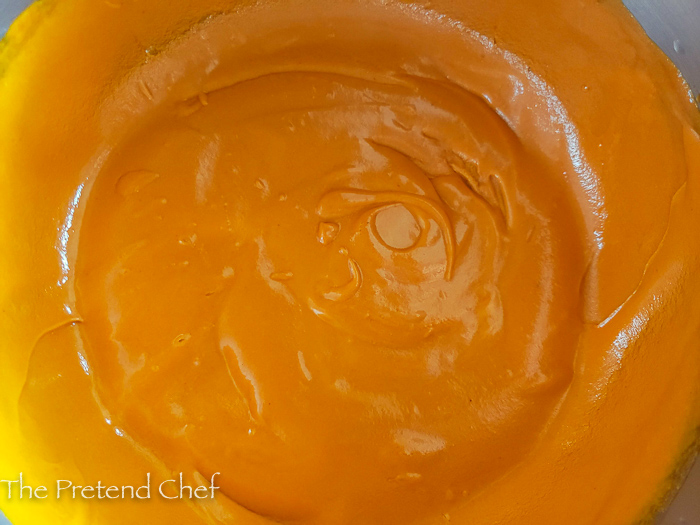
(If it is cracking, add another 1/2 tablespoon of akanwu water and stir. This mixture is called ncha (soap).)
Add one seasoning cube, ugba, crayfish (and crayfish seasoning cube if using), ehuru, scotch bonnet and about 1/4 cup of concentrated meat stock and stir well. Taste for seasoning and add salt if needed.
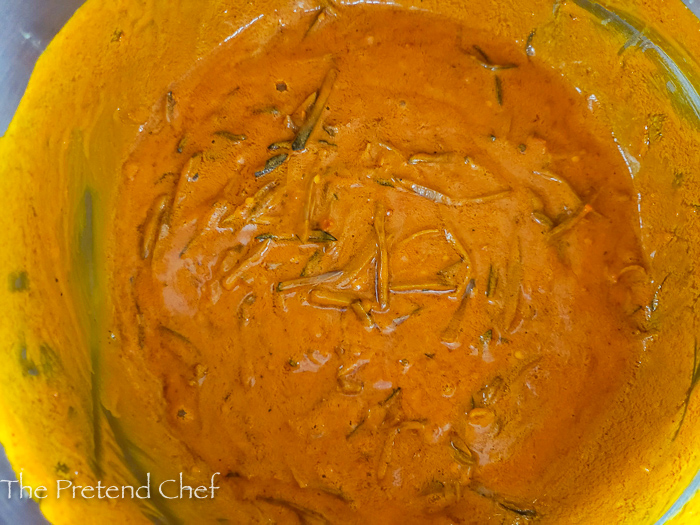
Scoop the cooked cow leg pieces into the slurry and mix to get the sauce into the crevices.
Place over low heat to just warm through, about 1 minute, stirring.
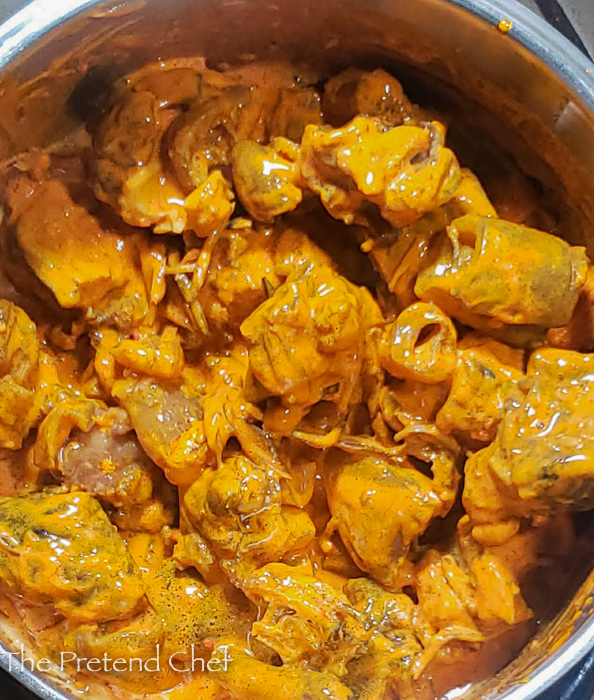
Dish into bowls garnished with onions rings, scotch bonnet and thingly sliced utazi and serve with palm wine or any drink of choice e.g Pina Colada, Nigerian Chapman or Afterglow Mocktail.
You can enjoy your Nkwobi paired with boiled or roasted yam and plantain also with plain white rice.
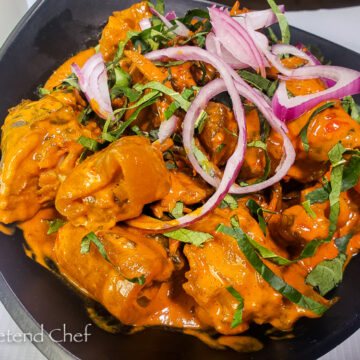
Nkwobi
Ingredients
- 1.5 kg Cow leg
- ½ small onion
- 1 cup ugba (ukpaka)
- 1 cup Palm oil
- 2 tablespoons Akanwu (potash, kaun*)
- 3 seasoning cubes
- 1 tablespoon crayfish or 1/2 crayfish seasoning cube
- 2 Ehuru seeds toasted and ground
- 2 scotch bonnet/fresh pepper ground
- salt
- 1 small onion thinly sliced (garnish)
- few utazi leaves thinly sliced (garnish)
- ½ chopped scotch bonnet/fresh pepper (garnish)
Instructions
- Have the butcher remove the large bone from the cow leg and cut the cow leg into small pieces.
- Wash thoroughly and place in a pot.
- Add water, salt and two seasoning cubes, cook meat until very soft.
- Be careful when adding water and salt because you want to have just a small quantity of concentrated stock left in the pot when the cow leg is ready.
- Set aside to cool down.
- In a small bowl, put akanwu and water, stir until well mixed, leave to stand to allow any sand to settle at the bottom.
- Meanwhile, thinly slice onions into rings, shred utazi and chop pepper for the garnish, set aside.
- Pour palm oil into a medium-sized pot.
- Add 3 tablespoons of the akanwu (potash) water and stir continuously using a wooden spoon, add more and stir until the oil thickens and the colour changes from red to yellow. (If it is cracking, add another 1/2 tablespoon of akanwu water and stir. This mixture is called ncha (soap))
- Add one seasoning cube, ugba, crayfish (and crayfish seasoning cube if using), ehuru, scotch bonnet and about 1/4 cup of concentrated meat stock and stir well. Taste for seasoning and add salt if needed.
- Scoop the cooked cow leg pieces into the slurry and mix to get the sauce into the crevices.
- Place over low heat to just warm through, about 1 minute, stirring.
- Dish into bowls garnished with onions rings, scotch bonnet and thingly sliced utazi.
Notes
- Serve with palm wine or any drink of choice e.g Pina Colada, Nigerian Chapman or Afterglow Mocktail.
- You can enjoy your Nkwobi paired with boiled or roasted yam and plantain also with plain white rice.
- Do not heat the Nkwobi for longer than a minute or else the oil will separate and your dish will taste oily instead creamy.
- The number of utazi leaves might vary depending on their size.
- Store in a freezer, thaw in the refrigerator and reheat over a gentle heat, just until warmed throw. You can defrost and use a low heat setting in your microwave oven too.
- Use baking soda as a substitute for akanwu.
Note
- Do not heat the Nkwobi for longer than a minute or else the oil will separate and your dish will taste oily instead creamy.
- The number of utazi leaves might vary depending on their size.
- Store in a freezer, thaw in the refrigerator and reheat over a gentle heat, just until warmed throw. You can defrost and use a low heat setting in your microwave oven too.
- Use baking soda as a substitute for akanwu.
If you enjoyed my Nkwobi in spicy palm oil sauce, you will also enjoy my Isi ewu, goat head in spicy sauce, Bushmeat and vegetable, Peppered Ponmo and Homework, goat meat Nkwobi.
Do you have any comments, questions or suggestions, please leave a comment below.
Subscribe to the blog for instant notifications of new recipes.
Please share this recipe using the share buttons.
Follow on Instagram: @thepretendchefofficial, Twitter: @thepretendchef Facebook: https://web.facebook.com/thepretendchef/, Pinterest: https://www.pinterest.com/thepretendchef/
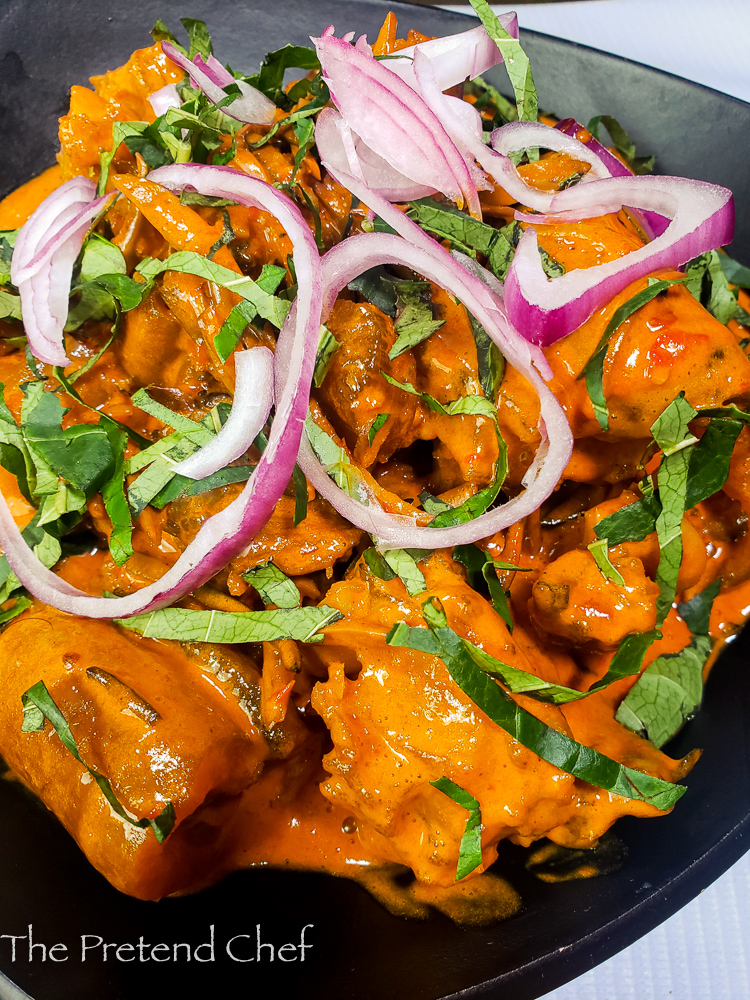
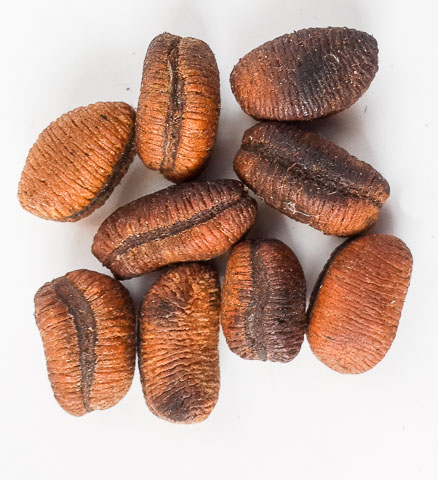
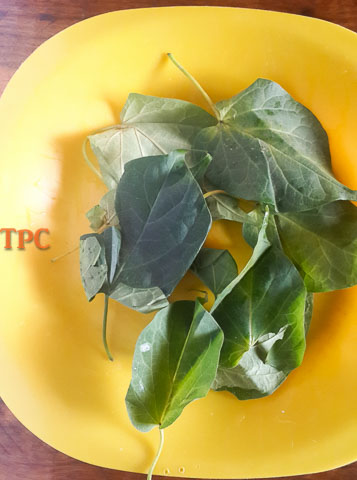
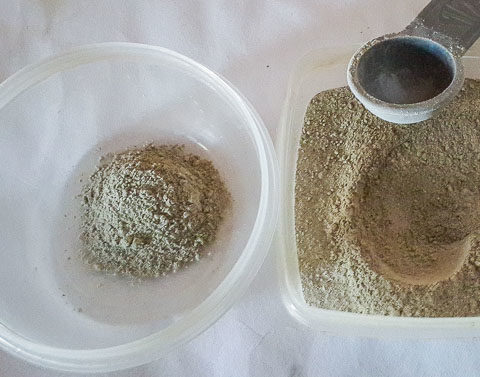
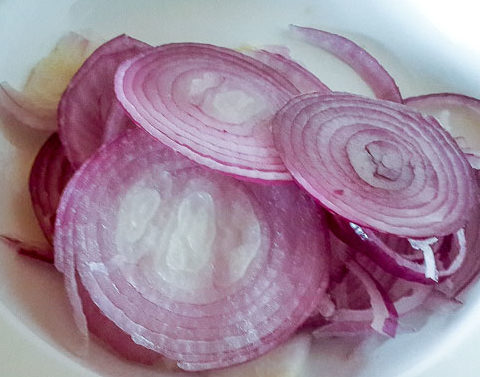
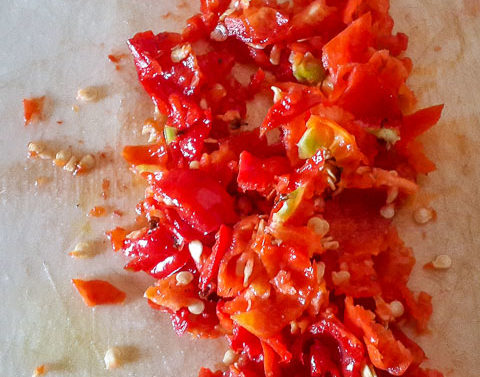
 I am Ganiru, a wife, a mother, a food blogger, a chef, an author and an accountant. I love to cook and write about food, especially Nigerian and afro-centric food...
I am Ganiru, a wife, a mother, a food blogger, a chef, an author and an accountant. I love to cook and write about food, especially Nigerian and afro-centric food...
Pingback: African breadfruit pottage, Ukwa etelu ete - The Pretend Chef